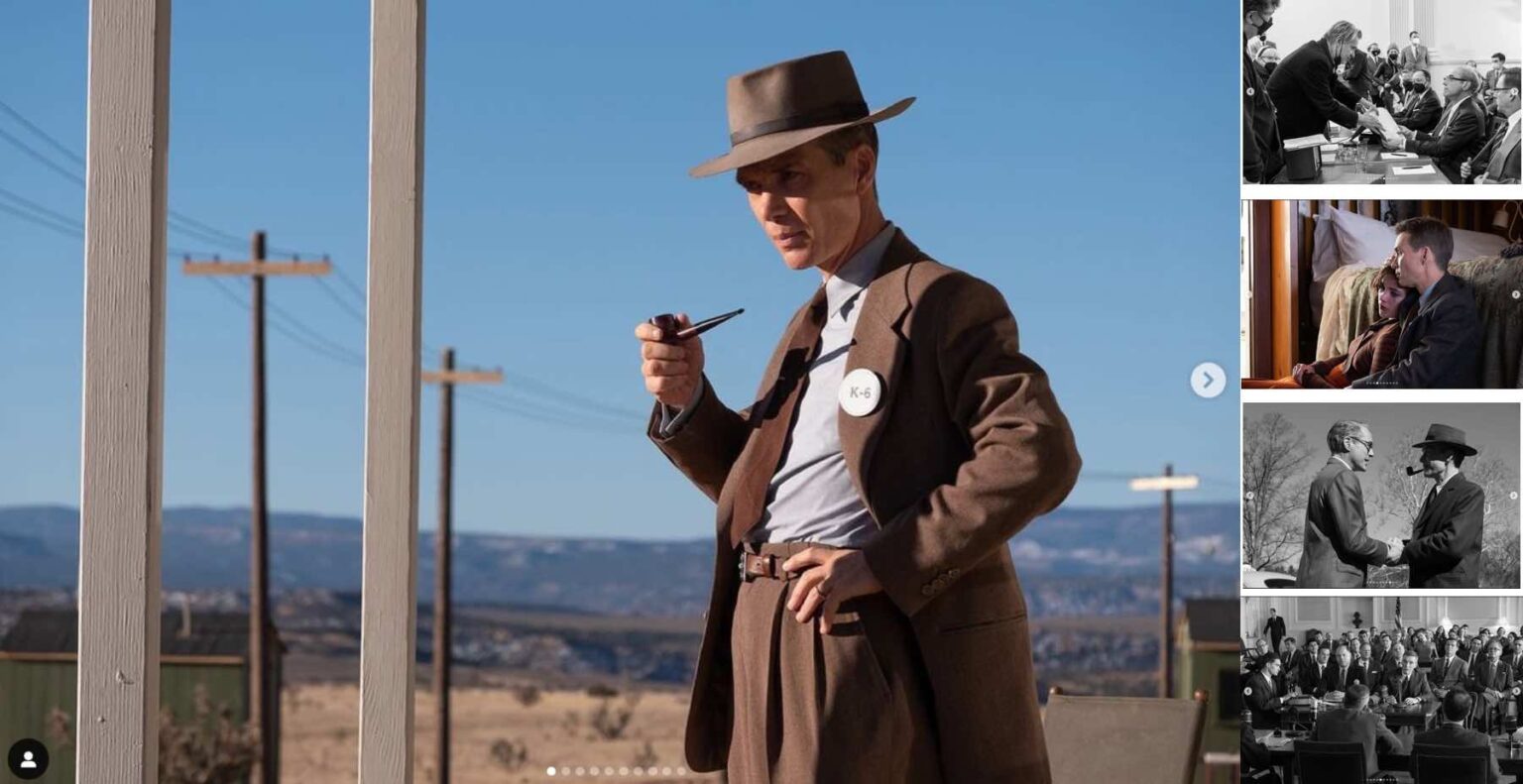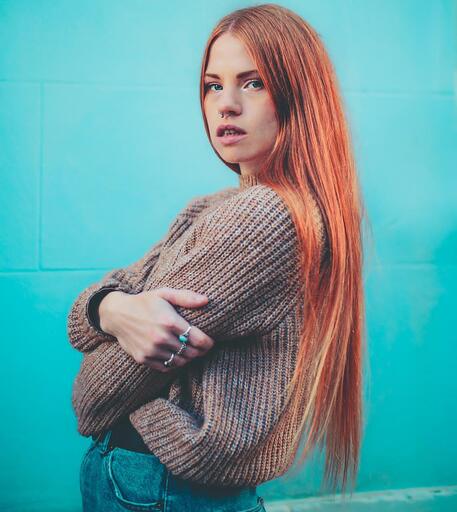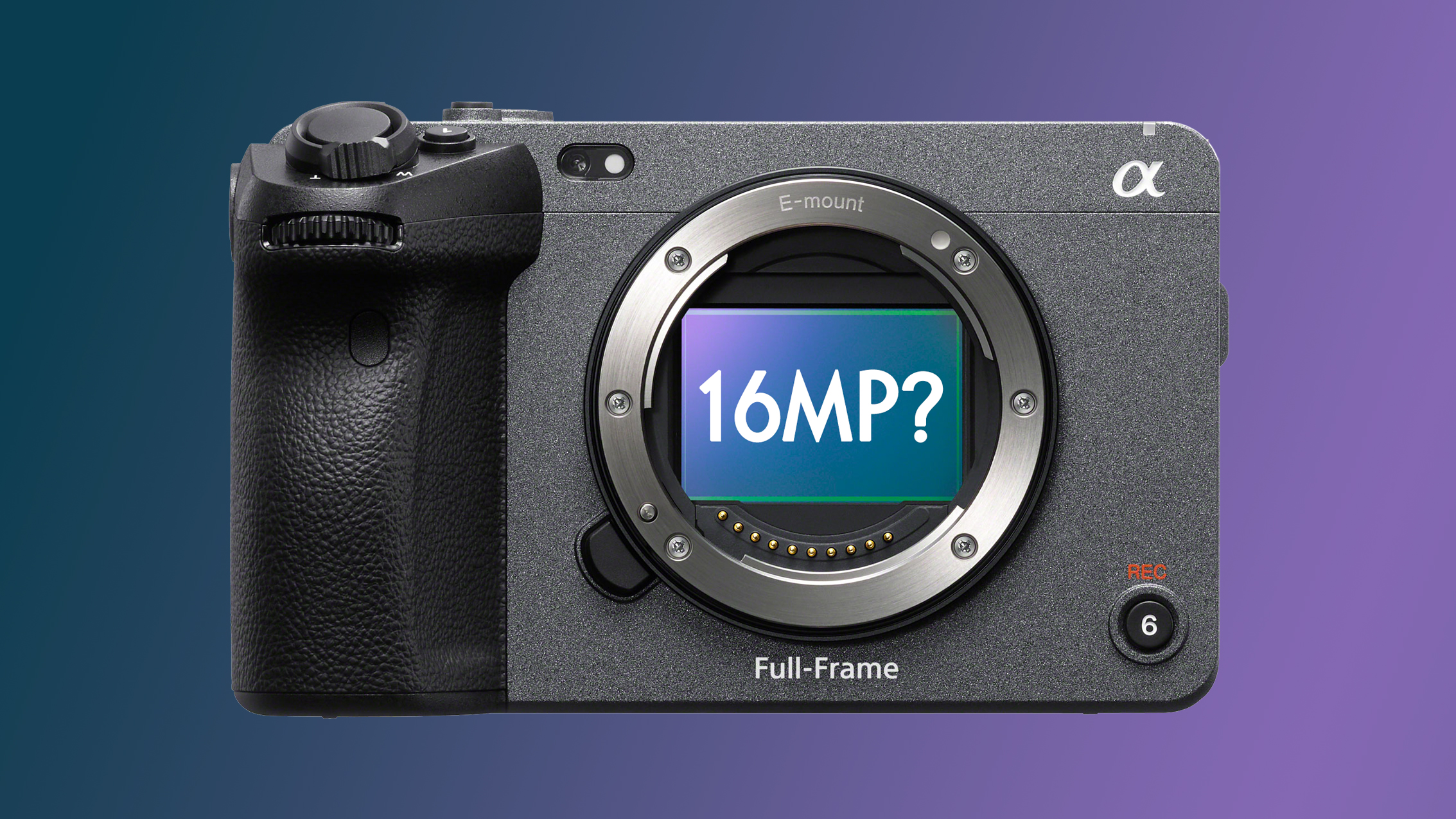APS-C cameras ARE pro kit – as proved by Oppenheimer's publicity stills
Oppenheimer's on-set stills were shot on a Fujifilm X-H1, proving that APS-C cameras ARE for pros

The best camera deals, reviews, product advice, and unmissable photography news, direct to your inbox!
You are now subscribed
Your newsletter sign-up was successful
An LA-based stills photographer is fighting the narrative that you need a full-frame camera to shoot professionally, shooting Oppenheimer's publicity photos on a crop sensor camera.
All too often, photographers think they need to invest loads of money in a full-frame system and expensive glass – but really you just need a good eye for composition and the ability to tell a story.
I’ve been guilty of it, too. I used to have a Fujifilm X-T3 and while I absolutely loved it, I upgraded to a Sony A7 III partly because I sometimes felt that I didn’t look as serious as other photographers when stood next to them (though there were other reasons, too). I didn’t have any big long lenses, and the camera body was small in comparison to full-frame systems, but I was still able to take amazing photos I was proud of. So why should there be any issue?
On the set of Christopher Nolan's Oppenheimer, unit stills photographer Melinda Sue Gordon shot everything using a Fujifilm X-H1 body, with a Fujifilm 16-55mm f/2.8, Fujifilm XF 50-140mm f/2.8 and a Fujifilm XD 18-135mm f/2.5-5.6 lens. This isn’t the first time she’s worked on a Hollywood blockbuster with an APS-C sensor camera, either. She was also the stills photographer for the 2017 war biopic Dunkirk (also directed by Nolan), only back then she was shooting with a Fujifilm X-Pro2.
A post shared by FUJIFILM Ukraine (@fujifilm_ukraine)
A photo posted by on
We need more professional photographers like Melinda to break down the stigma around using crop sensor cameras. The winner of the World Press Photo of the Year 2020 used the same camera as she did to shoot the winning image, proving once more that there isn’t really any prescribed need for a full frame.
Of course, there are advantages to full-frame systems – they tend to be better in low-light environments and there’s no crop factor – but as camera technology advances, the difference between full-frame and crop sensors is getting less noticeable.
• Why you should watch Oppenheimer on an IMAX 70mm screen
The best camera deals, reviews, product advice, and unmissable photography news, direct to your inbox!
Fujifilm Ukraine shared some of Melinda’s shots via its Instagram page, which featured a black-and-white shot of Rami Malek (portraying David Hill), an emotional photo of Florence Pugh (Jean Tatlock) with the film’s lead Cillian Murphy (J Robert Oppenheimer) plus a striking photo of Robert Downey Jr (Lewis Strauss) dressed in a suit staring straight down the lens.
When it comes to crop sensor cameras, Fujifilm really does pave the way both in specifications and style. To this day, my Fujifilm X-T3 has been one of my favorite cameras; there’s just something about having external exposure control dials, a retro look and on-lens aperture rings that make photography feel a lot more organic. There are lots of reasons to invest in an APS-C camera, even as a professional, and you shouldn’t let anyone tell you otherwise.
Take a look at the best Fujifilm cameras to see more of the industry's top APS-C bodies, along with the best Fujifilm lenses to get the most out of them.

Having studied Journalism and Public Relations at the University of the West of England Hannah developed a love for photography through a module on photojournalism. She specializes in Portrait, Fashion and lifestyle photography but has more recently branched out in the world of stylized product photography. Hannah spent three years working at Wex Photo Video as a Senior Sales Assistant, using her experience and knowledge of cameras to help people buy the equipment that is right for them. With eight years experience working with studio lighting, Hannah has run many successful workshops teaching people how to use different lighting setups.
